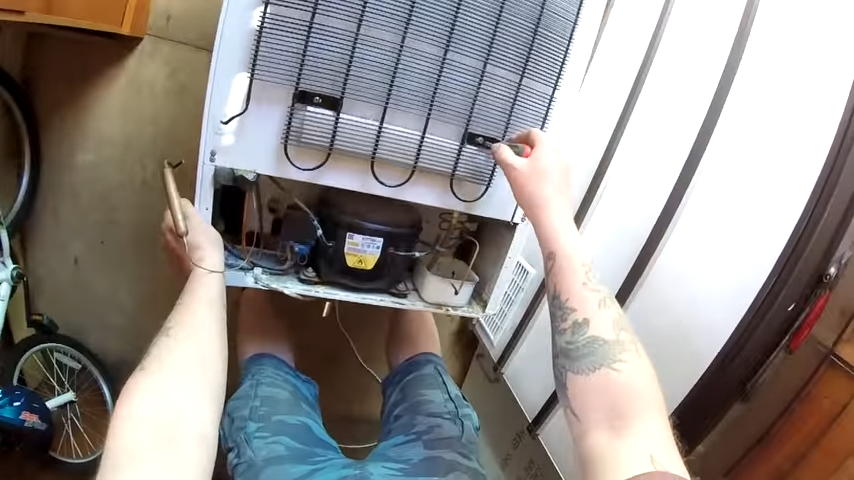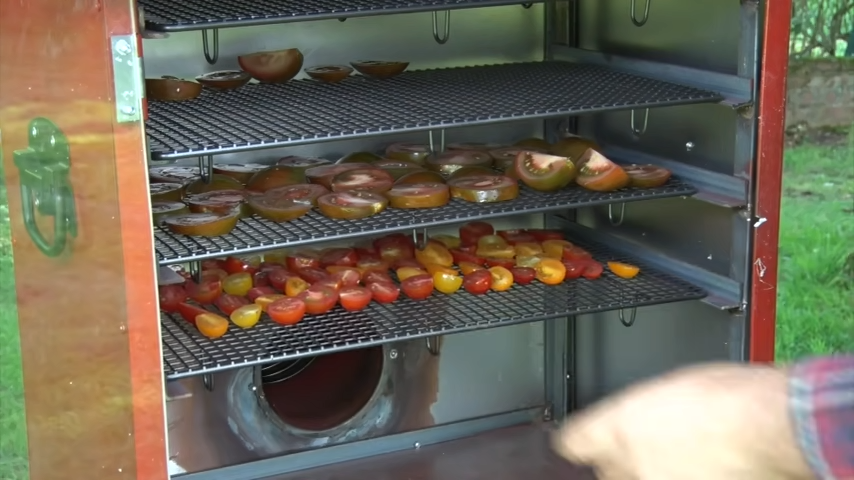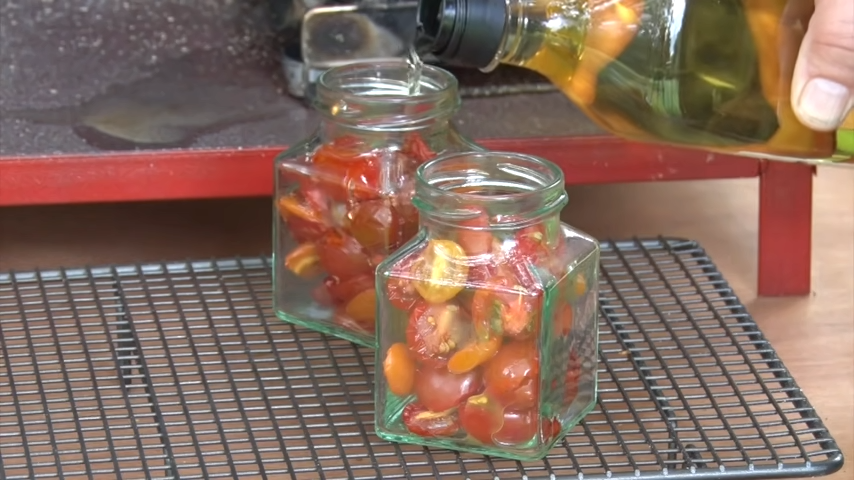Have you ever wished that food dehydrators were cheaper or more accessible? If so, then it is time to get creative! You can make your own food dehydrator with an old refrigerator. This post will walk you through the steps of how to convert a fridge into a food dehydrator.

What is Home Dehydrator?
Dehydrators are food preparation machines that food enthusiasts use to dehydrate food. They remove the moisture from food, which allows it to last much longer without spoiling and also creates a different texture in many dishes. With a food dehydrator you can make all types of dehydrated foods like beef jerky, dried fruit crisps or vegetable snacks.
Dehydrator Advantages
Dehydrated food is easy to store, transport and use in recipes. It’s also a great way of preserving food that you have grown or harvested yourself. Using dehydrators means no preservatives are necessary, so your food will retain all its natural nutrients – it doesn’t get any healthier than that! If you’re looking for ways to make healthy snacks easily at home without chemicals then using a food dehydrator could be the answer.
How to build A Food Dehydration Machine with An Old Refrigerator
Can I turn my refrigerated appliance into a useful tool? You don’t have to spend money on buying new appliances when your existing one can do just as well – all you need is some imagination! If building a food dehydrator from scratch seems like too much work then consider turning a refrigerated appliance into a food dehydration tool instead.

Important Note: if there’s an active cooling system inside (frost-free compressor), the food dehydrator conversion project is not for you.
The idea is to turn your fridge into a food dehydrator replacing the entire system from cooling to heating. It would be a pretty complicated process, since it requires some electrical engineering knowledge to safely remove the refrigerator’s condenser coils and replace them with heating elements. You can find a more detailed guide on the technical side of the issue on the Internet.
It can also be rather expensive process, if you do not have confident electrical skills, you need for sure to hire professionals.
Why Dehydrator is Better then An Oven?
If you want to make food dehydrator instead of buying it, using the oven is not a good choice. The food will lose too many nutrients and taste like plastic or burnt food even if that’s how it stays for ages in your refrigerator.

Food dehydration process requires lower temperatures than baking (less than 100°C). Thus food retains all its healthy properties because no heat-sensitive vitamins are lost during this type of food preparation
The only drawback is that it takes much more time to prepare snacks with an oven while drying fruit can be done within hours on low temperature.
What is Not Allowed in Dehydrator?
Perishable food should not be dried in the machine. There’s also no need for it as most of perishable items can now easily last up to two or three weeks without spoiling, which is pretty impressive considering that just some decades ago they would have gone bad even if stored in your basement!
Having said this, there are still certain types of food you shouldn’t put inside the oven: meat and seafood (since bacteria tends to proliferate more quickly at low temperatures), dairy products (due to milk proteins coagulation).
If you want to avoid unpleasant surprises when opening food dehydrator, follow the next advices:
- When food is ready, store it in an airtight container. Make sure food is dried first, before you package it. Food should be dry on the outside and still moist inside when packed for storage.

- Do not use cooking spray or butter to coat food as they would leave an oily residue that can cause unpleasant odors of rancid food packaging after some time of storage.
- If food smells like spoiled or moldy food then this means that bacteria has already contaminated the food. Throw it out immediately!
Your Own Homemade Contraption!
Have you ever wished that food dehydrators were cheaper or more accessible? If so, now you know all about making your own home dehydrator with an old refrigerator. This post will walk you through converting and willl give you some tips for using this homemade contraption!
